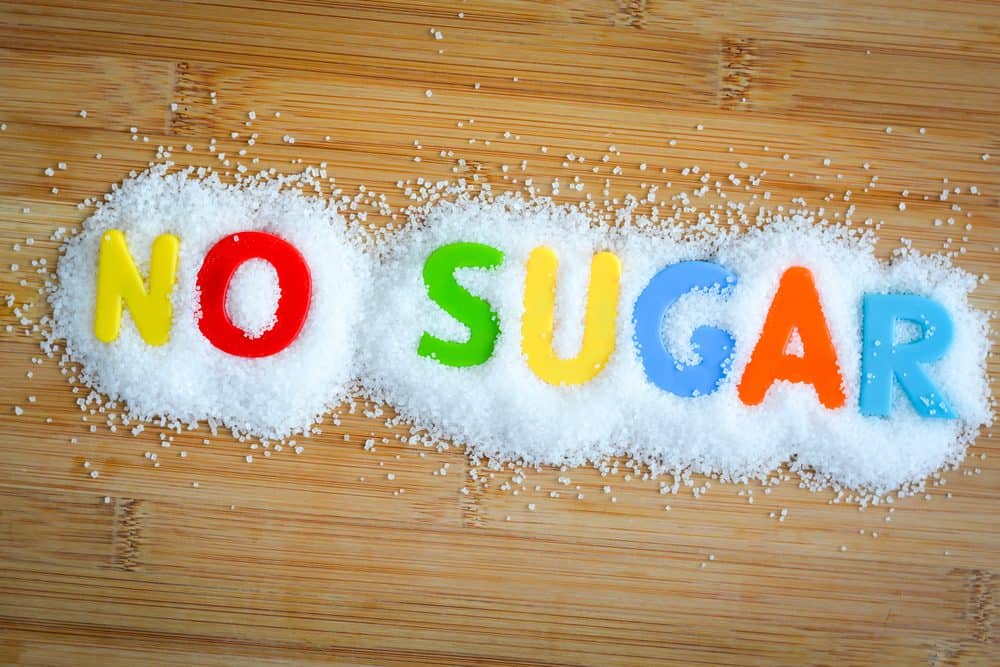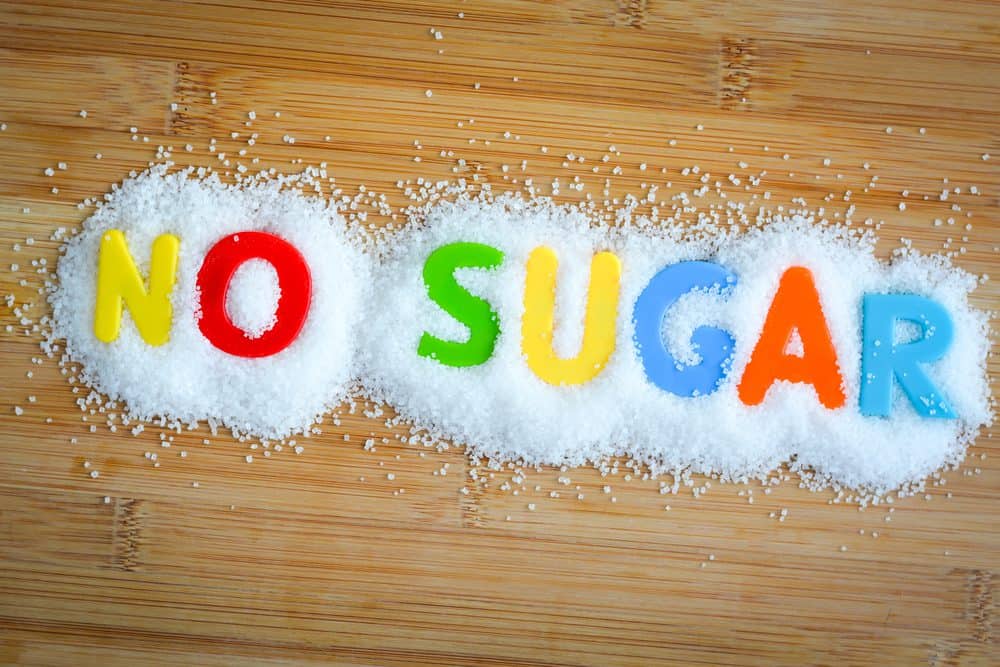Slow metabolism is one of the most common reasons people gain weight. Learn how to speed up your metabolism and lose weight.
If you want to lose weight fast, you need to speed up your metabolism. The faster your metabolism works, the more calories you burn, and the easier it is to shed those extra pounds.
There are several ways to increase your metabolism. One way is to eat less food. Another way is to exercise more often. And another way is to use certain supplements.
How To Speed Up Your Metabolism
Stop Eating Sugar

To speed up your metabolism, you should reduce or eliminate sugar from your diet. Sugar can cause a spike in insulin levels, slowing down your metabolic rate. This means that when you have high blood sugar, you will burn fewer calories than average.
Sugar also causes an overproduction of fat cells. When this happens, your body stores all these excess fats as energy instead of using them for other things like muscle building. If you don’t cut out sugar from your diet, you could end up with a lot of unwanted belly fat.
Eat more Protein
Another reason you might not lose weight is that you aren’t eating enough protein. Protein helps build muscles so they won’t get bigger but smaller. It also keeps you feeling fuller for longer. It would help if you aimed at bringing about 25% of your daily calorie intake from proteins.
Whey protein isolate
WPI provides an excellent source of branched chained amino acids, including leucine, isoleucine, valine, phenylalanine, methionine, lysine, threonine, tryptophan, histidine, arginine, cysteine, tyrosine, glycine, proline, serine, glutamic acid, aspartic acid, and glutamine.
Branched chains play a critical role in stimulating metabolism and fat oxidation. Leucine stimulates mTORC1 signaling resulting in increased lipolysis, thermogenesis, and mitochondrial biogenesis. Isoleucine increases insulin sensitivity and decreases gluconeogenesis.
Drink more Water

You may think drinking water would help boost your metabolism since you feel full after consuming lots of fluids. However, studies show that doing so makes you consume less food overall. So while you may drink plenty of H2O, you won’t necessarily be able to control what you’re putting into your mouth. Instead, focus on increasing fiber consumption by adding whole grains, such as brown rice, quinoa, oats, barley, etc., to your meals. Fiber fills you up without filling you out. Plus, evidence shows that fiber reduces hunger hormones and boosts the satiety hormone.
Exercise Regularly

To speed up your metabolism, try exercising regularly. Exercise boosts your metabolism by increasing the amount of oxygen available to working tissues. A study published in Medicine & Science in Sports & Exercise showed that exercising had higher resting metabolisms than sedentary individuals.
Exercise also increases the number of mitochondria within our bodies cells. Mitochondria are where we produce cellular energy through aerobic respiration. They work much better when there are ample amounts of oxygen around. Regular workouts maximize mitochondrial function and improve our ability to break down foods efficiently.
Strength Training
If you haven’t been strength training lately, it’s time to start! Strength training builds lean muscle mass, improves bone density, burns fat faster, and gives you a stronger immune system. Studies suggest that those who lift weights tend to burn between 100-200 extra calories per week because their metabolism has sped up due to exercise.
So go ahead and hit the gym today. And remember: Keep lifting until you see results. Then keep lifting some more.
A healthy lifestyle doesn’t mean living on salads alone. Many health experts say that eating fruits and vegetables with whole grains, nuts, beans, and fish is the best way to get all the nutrients you need without missing out on any. Here are four simple ways to incorporate plant-based foods into your daily meal plan.
High-intensity interval training
Involves short bursts of high intensity followed by low or no activity for recovery periods. HIIT can increase metabolic rate during both rest and active states. It helps build endurance and stamina, which means you’ll have more energy throughout the day. This type of workout is great if you want to lose weight but don’t have the time to do traditional cardio sessions like running or cycling.
Other Ways to Increase Your Metabolism
While exercise is essential, some people find that taking certain supplements speeds up their metabolism further. These include:
Green tea extract
Studies suggest that green tea extracts contain compounds called catechins that stimulate thermogenesis. In addition to stimulating thermogenesis, researchers believe that catechin-rich teas promote weight loss by suppressing appetite.
Green tea has been shown to suppress hunger hormones ghrelin and leptin. Ghrelin tells your brain that you’re hungry; leptin signals your brain that you’ve eaten enough. By reducing both of these hormones, green tea reduces your desire to overeat.
Research shows that green tea extract suppresses ghrelin completely. Other types of tea only partially inhibit ghrelin production.
Spicy Food

Hot peppers like jalapeños can increase your body temperature and make you sweat. This causes your blood vessels to dilate and allows for increased circulation. The result? You’ll have an easier time burning off excess calories throughout the day.
Research suggests that capsaicin — an ingredient in hot peppers like jalapenos and habaneros — can increase metabolic rate. Capsaicin activates receptors located in the hypothalamus, which stimulates heat generation. Eating spicy foods could lead to increased calorie burning during digestion.
It’s not clear why spicy foods have this effect, but one theory is that capsaicin turns on heat receptors near the stomach. Activating these receptors triggers nerve impulses that send messages to your brain, telling it to stop eating.
Chromium picolinate
Chromium is found naturally in many vegetables and fruits, including potatoes, beans, broccoli, cauliflower, spinach, mushrooms, tomatoes, avocados, almonds, cashews, peas, lentils, oats, bananas, oranges, strawberries, peaches, and apricots. Some experts recommend chromium picolinate for its role in regulating glucose metabolism.
A recent review article suggests that chromium picolinate supplementation improves insulin sensitivity. Insulin resistance happens when the target tissue doesn’t get enough insulin, which raises the blood sugar level. People who have type 2 diabetes tend to develop insulin resistance.
Caffeine
Caffeine stimulates your central nervous system causing your heart rate to rise and adrenaline to flow throughout your body. This can make it easier to burn calories as well as fat. It’s a great way to get moving if you don’t want to go all out with an intense workout.
Zinc
Zinc helps regulate thyroid hormone activity, which is crucial in maintaining metabolic rates. The mineral supports healthy immune responses and assists in wound healing.
Magnesium
Magnesium deficiency is common among overweight women because they often have inadequate dietary intake or poor absorption due to excessive sweating during physical exertion. Low magnesium levels result in lower calorie-burning capacity.
Vitamin D3
Vitamin D3 promotes calcium absorption to maintain bone health. Calcium builds strong bones and aids muscle contraction. When combined with adequate protein consumption, vitamin D3 enhances lean muscle growth.
Lutein/zeaxanthin
Lutein and zeaxanthin are antioxidants that protect against damage caused by free radicals. Free radical formation results from toxins like cigarette smoke, air pollution, radiation, pesticides, herbicides, solvents, heavy metals, and other chemicals.
Omega-3 fatty acids
Omega-3 fats reduce inflammation, increase satiety, and enhance mood. Eating fish at least twice weekly will provide sufficient quantities of this nutrient. Fish rich in omega-3 fats includes salmon, tuna, sardines, mackerel, herring, trout, halibut, cod, anchovies, rainbow trout, lake whitefish, bluefish, flounder, and albacore tuna.
Folic acid
Folic acid is essential for the synthesis of DNA and RNA within cells. It helps cells divide correctly, so not getting enough of it can cause problems like chromosomal abnormalities, birth defects, and even cancer. Women who become pregnant should take 400 mcg daily, while those planning to become pregnant should take 800 mcg before conception. Pregnant women need more than 1 mg daily.
Coenzyme Q 10
Coenzyme Q 10 is essential for energy production in mitochondria. Mitochondrial dysfunction contributes to obesity and weight gain. In addition, low coenzyme Q 10 contributes to cardiovascular diseases risk factors such as high cholesterol, triglycerides, LDL, and hypertension. Supplementation with 200mg daily appears safe and effective.
Probiotics
Probiotic supplements contain live bacteria strains that help support digestive tract function. These beneficial microbes assist digestion by breaking down food into absorbable nutrients. They also produce short-chain fatty acids that promote colon health. Research indicates that people with higher amounts of good gut flora experience less bloating after eating, better bowel movements, improved immunity, reduced allergies, decreased asthma symptoms, fewer colds, and enhanced mental focus.
Cut Back On Alcohol Consumption To Boost Energy Levels
Alcohol consumption lea, promotingon because alcohol causes us to retain fluids. Dehydration slows metabolism and makes us feel tired. It also lowers our body temperature, which reduces metabolic rate. When we drink alcohol, we consume foods rich in carbohydrates, leading to even greater fluid loss. We often crave sugary drinks when dehydrated.
Drinking water helps reduce these urges. Water has many other benefits. For example, drinking enough water keeps blood pressure normal. The kidneys filter out excess salt from the bloodstream through urine. Increasing the amount of water consumed increases the volume of purified waste products. So, the amount of sodium in the bloodstream drops, which helps keep heart failure from happening.
The best way to get adequate hydration is to avoid excessive sugar-sweetened beverages. Instead, opt for plain water. Try adding lemon slices to your glass of H2O. Lemon juice contains citric acid, which aids in flushing toxins from the system.
Conclusion
If you want to lose weight fast, you need to speed up your metabolism. The faster your metabolism works, the more calories you burn, and the easier to shed those extra pounds. Drink more Water. Another way is to exercise more often. Stop Eating Sugar You may think that drinking water would help boost your metabolism. Instead, focus on increasing fiber consumption by adding whole grains and whole grains to your meals.
Exercise boosts your metabolism by increasing the amount of oxygen available to working tissues. HIIT is great if you want to lose weight but don’t have the time to do traditional cardio sessions like running or cycling. While exercise is essential, some people find that taking certain supplements speeds up their metabolism further.
In conclusion, there are several ways you can boost your energy levels without resorting to stimulants or unhealthy habits like smoking cigarettes. Start today!
FAQs
Speeding up your metabolism naturally is possible by making a few lifestyle changes. Eating smaller meals throughout the day, your body uses more energy digesting and processing multiple smaller meals than two or three large meals. Eating protein at each meal requires more energy to digest than carbohydrates or fats. Adding regular exercise like strength training, cardiovascular exercise, and stretching into your weekly routine. Finally, staying hydrated by drinking plenty of water throughout the day helps support efficient metabolic processes.
Foods that increase metabolism and burn fat include protein-rich foods such as meat, fish, eggs, dairy, legumes, nuts, and seeds. Fruits like apples can also help trap fat. Other metabolism-boosting foods include avocados, tempeh, chili peppers, beans, whole grains, and white meat. Eating these foods can help boost your metabolism for a few hours and aid in weight loss.
Green tea, oolong tea, coffee, ginger tea, apple cider vinegar, lemon water, vegetable juice, and green tea are all drinks that can help to speed up metabolism. Green tea catechins have been proven to increase fat burning and boost metabolism. Drinking 2-4 cups of either green or oolong tea may push the body to burn 17% more calories during moderately intense exercise for a short time.
Incorporate strength training, regular meal times, and a diet rich in protein and calories into your routine. Additionally, sipping on green tea and coffee can provide a metabolic boost, while post-workout aerobic exercise can keep your metabolism revved up for hours afterward. To further enhance your metabolism, try incorporating more fiber-rich foods into your diet and avoid processed foods as much as possible.
References
1“The Five Best Ways To Boost Metabolism | Piedmont Healthcare.” https://www.piedmont.org/living-better/5-ways-to-boost-metabolism
2“The Five Best Ways To Boost Metabolism | Piedmont Healthcare.” https://www.piedmont.org/living-better/5-ways-to-boost-metabolism
3“How to Speed Up Your Metabolism: 9 Easy Ways – Healthline”. https://www.healthline.com/nutrition/10-ways-to-boost-metabolism
4“10 Ways to Rev Up Metabolism, Burn Calories, and Lose Weight”. https://www.webmd.com/diet/ss/slideshow-boost-your-metabolism
5“How to Speed Up Your Metabolism Naturally – UnityPoint Health.” https://www.unitypoint.org/livewell/article.aspx?id=15b7f2f6-ea65-437b-8a60-38bfeef203b0
6“11 natural ways to increase your metabolism”. https://www.medicalnewstoday.com/articles/323328
7“11 Ways to Boost and Speed Up Metabolism – Byrdie”. https://www.byrdie.com/how-to-speed-up-metabolism
As a veteran fitness technology innovator and the founder of GearUpToFit.com, Alex Papaioannou stands at the intersection of health science and artificial intelligence. With over a decade of specialized experience in digital wellness solutions, he’s transforming how people approach their fitness journey through data-driven methodologies.
